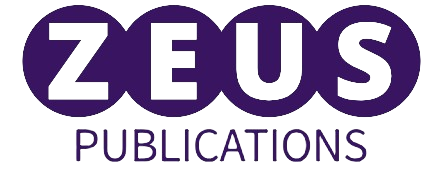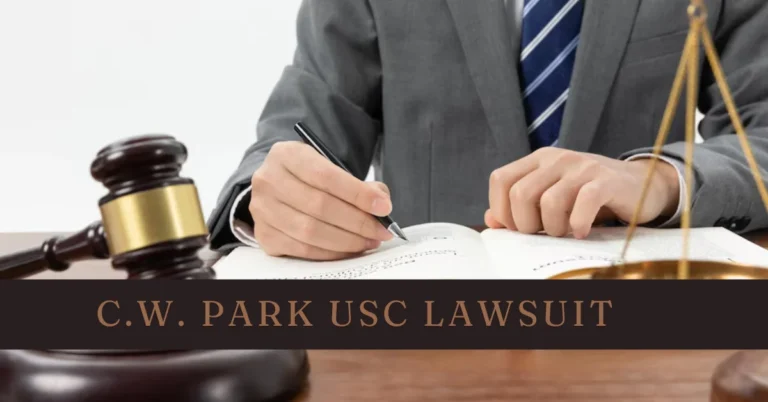Introduction to the C.W. Park USC Lawsuit
c.w. park usc lawsuit lawsuit has captured the spotlight, drawing attention to serious allegations and raising questions about accountability in higher education. As discussions surrounding sexual abuse continue to gain momentum, this case serves as a pivotal moment for both the University of Southern California and its broader community. With numerous students affected and a legacy at stake, the unfolding story holds significant implications for future policies and practices on campuses nationwide. Let’s dive deep into what led to this legal battle and explore its far-reaching consequences.
Background on the Case
The C.W. Park USC lawsuit emerged from a troubling narrative surrounding the University of Southern California’s handling of sexual misconduct allegations. Central to this case is Dr. George Tyndall, a former campus gynecologist accused of inappropriate behavior with multiple patients.
These allegations came to light against the backdrop of broader societal conversations about consent and accountability in higher education. The accusations spanned several years, raising questions about institutional oversight.
As more individuals stepped forward, it became clear that the university faced significant scrutiny for its lack of action following earlier complaints. This led to mounting pressure on USC to address these issues transparently and responsibly.
The legal battle highlighted not only individual experiences but also systemic failures within academic institutions when addressing claims of abuse and harassment.
Allegations against USC and Dr. George Tyndall
The C.W. Park USC lawsuit has brought to light serious allegations against the University of Southern California and its former campus gynecologist, Dr. George Tyndall. Numerous female students have accused Tyndall of inappropriate conduct during medical examinations that crossed ethical boundaries.
Victims described experiences involving unnecessary nudity and invasive questioning that left them feeling uncomfortable and violated. Some allegations also pointed to a lack of proper consent, raising significant concerns about patient rights.
C.W. Park USC Lawsuit has been scrutinized for its handling of these complaints over the years. Critics argue that the university failed to act promptly despite repeated warnings from students regarding Tyndall’s behavior.
This situation highlights systemic issues within higher education institutions concerning student safety and accountability. The impact on victims has been profound, sparking conversations around trust in healthcare providers on campus and the necessity for reform in reporting procedures.
Impact on the University and its Students
The C.W. Park USC lawsuit sent shockwaves through the campus community. Students, faculty, and alumni were left grappling with the allegations against Dr. George Tyndall.
Trust in the university took a significant hit. Many students felt betrayed by an institution meant to protect their well-being. Concerns about safety and transparency emerged at every corner of campus life.
Student organizations began rallying for change, demanding better oversight regarding sexual misconduct cases. This event sparked a broader conversation about accountability within higher education institutions.
Moreover, prospective students now scrutinize USC’s commitment to student safety more closely than ever before. The reputation of the university hangs in the balance as it confronts its past failures while striving to rebuild trust among current and future generations.
This saga has made clear that universities are not just educational environments; they must also be safe havens for all students.
Response from USC and Tyndall
USC’s response to the allegations in the C.W. Park lawsuit has been multifaceted. The university has consistently maintained that it takes these accusations seriously. They expressed commitment to transparency and cooperation with investigations.
Dr. George Tyndall, on the other hand, denied any wrongdoing. He argued that his medical practices were standard for gynecological examinations at the time he served as a physician for students.
Both parties have emphasized their perspectives through public statements and legal channels. USC highlighted its efforts to improve campus safety and support victims of sexual abuse following these revelations.
Tyndall’s defense team sought to challenge the credibility of some claims made against him, focusing on procedural aspects of how care was administered during appointments.
The situation remains complex, reflecting broader issues within higher education systems regarding accountability and student safety measures.
Updates and Settlement of the Lawsuit
In recent developments regarding the C.W. Park USC lawsuit, significant progress has been made toward resolution. The legal proceedings have unfolded over several years, involving numerous hearings and extensive media coverage.
As of late 2023, a tentative settlement agreement was announced. This proposal aims to compensate those affected by Dr. George Tyndall’s alleged misconduct while ensuring institutional changes at USC.
While details about the financial terms remain undisclosed, it is clear that both parties are eager to move forward. The university expressed its commitment to addressing past failures in handling sexual abuse allegations.
The settlement process also emphasizes transparency moving forward. USC intends to implement policies designed for better protection of students’ rights and foster a safer campus environment.
Lessons Learned and Changes Implemented at USC
The C.W. park usc lawsuit has prompted significant introspection within the university’s administration. As a result, policies regarding student safety have undergone rigorous evaluations.
USC has taken steps to enhance transparency in reporting procedures for sexual misconduct. They now encourage students to voice concerns without fear of retaliation.
Training programs for faculty and staff have been revamped, focusing on recognizing signs of abuse and fostering a supportive environment for victims. Awareness campaigns are also more prominent on campus.
Furthermore, mental health resources have expanded dramatically. Students can access counseling services tailored specifically for survivors of trauma.
These changes aim not only to address past failures but also to create a safer academic atmosphere moving forward. The lessons learned from this experience resonate beyond just policy adjustments; they reflect a commitment to prioritizing student well-being above all else.
The Ongoing Conversation about Sexual Abuse in Higher Education
The discussion surrounding sexual abuse in higher education is more pertinent than ever. Institutions are facing increased scrutiny as survivors bravely share their stories.
This ongoing dialogue has sparked a demand for transparency and accountability. Students, faculty, and alumni alike are calling for systemic changes to create safer environments on campuses across the nation.
Social media plays a crucial role in amplifying these voices. Hashtags like #MeToo have united individuals from various backgrounds to stand against misconduct and support one another.
Educational institutions are now under pressure not just to respond but also to prevent future incidents. Implementing comprehensive training programs and transparent reporting systems is essential for fostering trust within academic communities.
As conversations evolve, it’s clear that cultural shifts must occur at all levels of administration. The fight against sexual violence continues, revealing deep-rooted issues that require our attention and action moving forward.
Conclusion
The c.w. park usc lawsuit has shed light on critical issues surrounding sexual abuse in higher education. The allegations against USC and Dr. George Tyndall have not only impacted the immediate parties involved but also sparked a broader conversation about accountability, safety, and healing within academic institutions.
As universities continue to navigate their responsibilities towards students, the lessons learned from this case remain vital. They highlight the necessity for transparent policies and robust support systems for survivors of abuse. It’s clear that addressing these concerns is an ongoing journey rather than a destination.
Moving forward, it will be imperative for educational institutions to foster environments where students feel safe reporting any misconduct and confident that their voices will be heard. While progress has been made since the lawsuit’s inception, continuous vigilance is essential to ensure such incidents do not recur.
The discussion around sexual abuse in higher education must persist until all students can confidently pursue their studies without fear or intimidation. Awareness leads to change; change fosters resilience within communities vulnerable to exploitation. As conversations evolve, so too should institutional practices aimed at protecting those they serve.
FAQs
Q: What is the C.W. Park USC Lawsuit about?
Ans: The C.W. Park USC Lawsuit involves allegations of sexual harassment against a professor at USC, sparking significant public attention and legal action.
Q: Who is C.W. Park?
Ans: c.w. park usc lawsuit is a professor at the University of Southern California (USC), who has been accused of sexual misconduct, leading to the lawsuit.
Q: What is the current status of the C.W. Park USC Lawsuit?
Ans: As of now, the lawsuit is ongoing, with investigations and legal proceedings continuing to unfold.
Q: Why has the C.W. Park USC Lawsuit gained so much attention?
Ans: The lawsuit has drawn widespread attention due to the serious nature of the allegations and the high-profile institution involved.
Q: How can I stay updated on the C.W. Park USC Lawsuit?
Ans: You can stay informed by following credible news sources and checking updates from legal and educational platforms.

